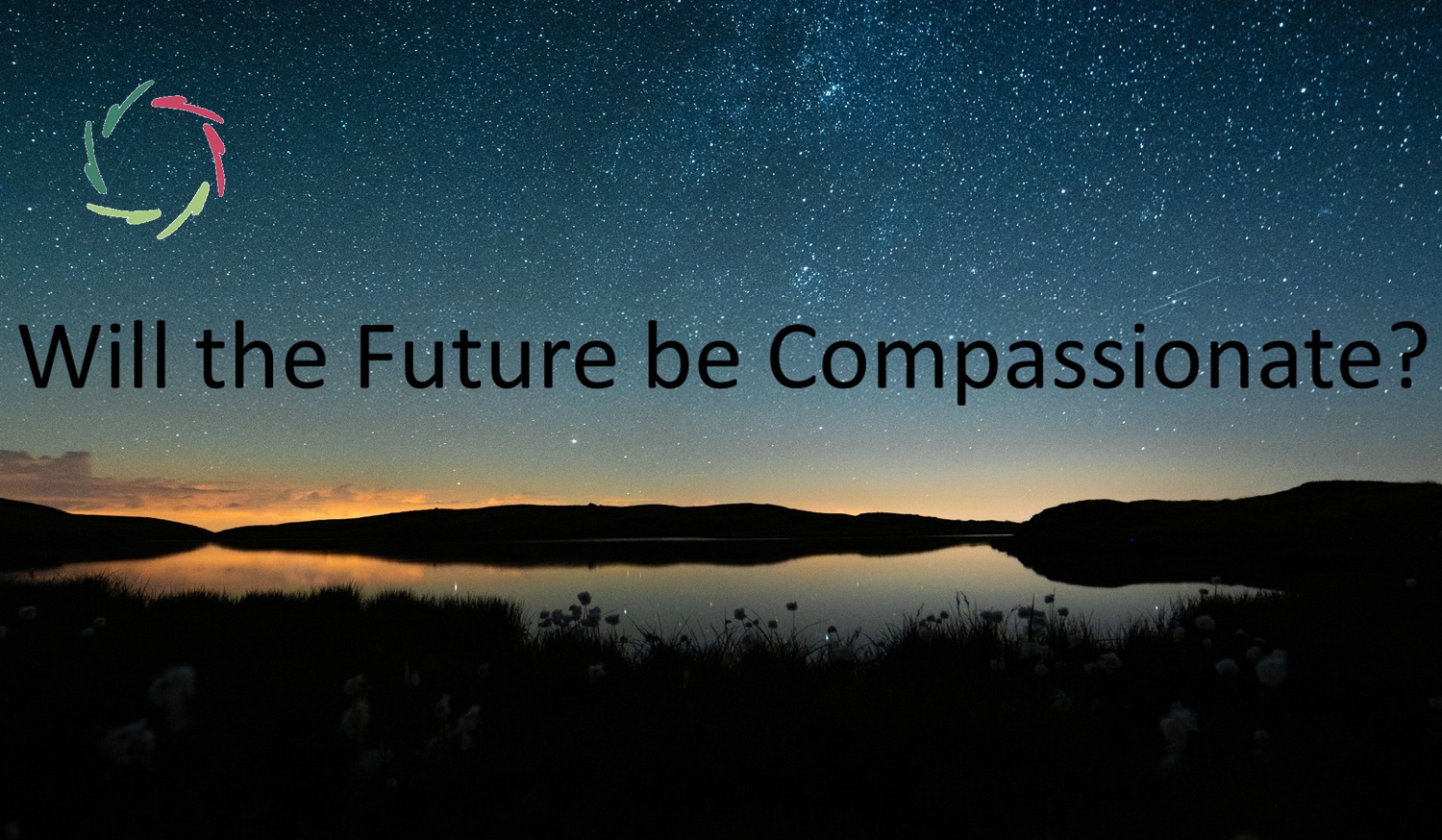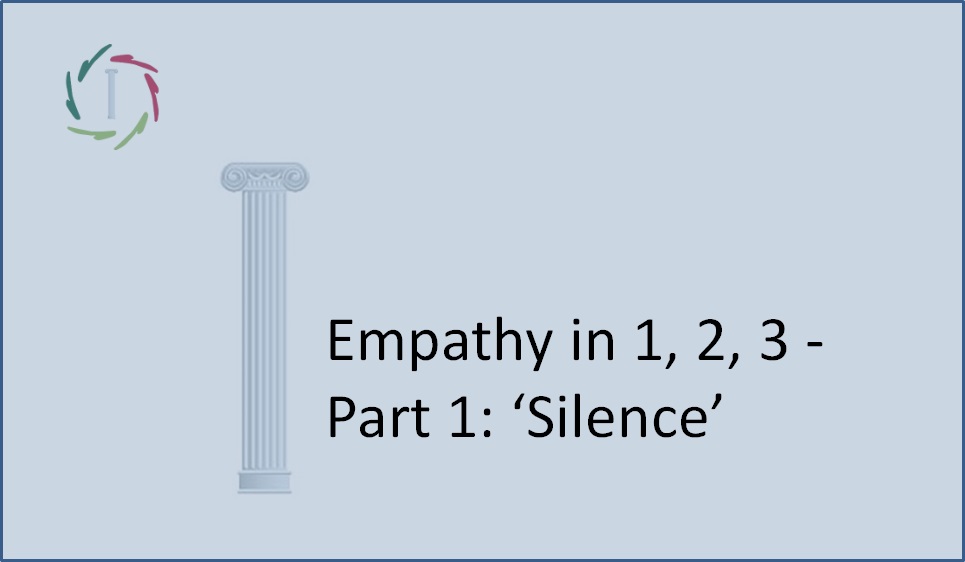Will the Future be Compassionate?

The future is not a distant dream. We are building it now, piece by piece, with every decision we make, especially in the realm of artificial intelligence.
The question is no longer just whether humanity will continue to exist but whether the future – shaped in no small part by A.I. – will be Compassionate. The answer to this question will determine not just the survival of our species but the quality of that survival.
What does a Compassionate future mean?
Compassion is more than kindness or altruism. It is a deep, human-centered approach to understanding and addressing suffering while fostering growth and well-being. A Compassionate future means systems – technological, societal, and personal – that are designed to uplift individuals, nurture connection, and promote sustainable growth.
In the context of A.I., Compassion translates into systems that amplify humanity’s best qualities rather than merely automating tasks or replicating existing flaws. This requires ethical frameworks that go beyond superficial fairness to engage with the deeper layers of human values, motivations, and non-conscious dynamics.
A.I. as a turbo of human propensity
A.I. is not neutral — it reflects and amplifies the values embedded in its design. If created with a disconnected or shallow understanding of humanity, A.I. could exacerbate existing divisions, deepen Inner Dissociation, and even magnify destructive tendencies. Conversely, if imbued with depth-driven ethics, A.I. has the potential to amplify Compassion, inclusivity, and growth.
However, the development of A.I. involves navigating a double bottleneck:
- The human-made bottleneck: Decisions by developers, companies, and governments can entrench biases or prioritize profit over people.
- The A.I.-made bottleneck: As A.I. evolves, even a single stage of misalignment could lead to catastrophic consequences, regardless of initial intentions.
These bottlenecks emphasize the critical need for embedding Compassion into A.I. development now, before it takes on a life of its own.
At the heart of this challenge lies Inner Dissociation.
This is the disconnection between individuals and their deeper mental layers. This dissociation fuels fragmented thinking and superficial ethics, leading to systems that fail to address root causes or foster genuine human growth.
For example:
- Superficial ethics in A.I. might focus on ensuring transparency or avoiding overt harm while neglecting deeper societal needs like mental well-being, empathy, and trust.
- Depth-driven ethics, in contrast, would create A.I. systems that align with non-conscious human dynamics, fostering integration, self-awareness, and mutual respect.
Proactive inclusivity in A.I.
A Compassionate A.I.-future demands proactive inclusivity. This is not merely about token representation but about designing systems that:
- Adapt to diverse contexts: A.I. must be capable of understanding cultural, psychological, and individual nuances, offering personalized solutions that resonate deeply.
- Foster dialogue across boundaries: By encouraging meaningful communication, A.I. can help bridge divides and promote empathy between groups.
- Empower subtle voices: Many perspectives are overlooked in current systems. A.I. can amplify these voices, ensuring that inclusivity becomes a lived reality rather than a performative gesture.
Compassionate A.I. in mental healthcare
Mental healthcare offers a compelling case study for the transformative potential of Compassionate A.I. Today’s approaches often rely on superficial fixes like medication or rigid therapeutic frameworks. While these can be helpful, they frequently ignore the subconscious dynamics that underlie mental distress.
A Compassionate A.I. system in mental healthcare could:
- Gently guide individuals toward self-awareness and inner alignment.
- Offer tailored support that respects each person’s unique mental landscape.
- Foster a culture of responsibility without guilt, empowering individuals to grow without feeling burdened by blame.
This depth-driven approach not only heals but also nurtures long-term resilience and well-being.
The ethical responsibility of today’s decisions
The choices we make today about A.I. development are laying the foundation for tomorrow’s world. Whether the future is hospitable – or dystopian – depends on whether we prioritize depth, inclusion, and Compassion in our ethical frameworks.
Superficial fixes may offer temporary solutions but will not sustain us. Depth-driven ethics, informed by an understanding of subconscious processes, is essential for creating systems that truly serve humanity. This is not just a technological challenge but a moral and spiritual one.
A vision for a Compassionate A.I.-future
A future where A.I. embodies Compassion is not just desirable — it is necessary. Such a future:
- Balances rationality with depth: Combining technological innovation with human-centered values ensures that progress aligns with our highest aspirations.
- Fosters sustainable growth: By addressing root causes and subconscious dynamics, Compassionate A.I. creates systems that are resilient, inclusive, and nurturing.
- Supports inner and outer harmony: From mental health to global governance, A.I. can act as a bridge between individual well-being and collective flourishing.
The future, shaped in no small part by A.I., will be what we make it ― now.
By embedding Compassion and depth-driven ethics into its development, we can create a world that not only survives but thrives. The time to act is now. Every decision is a stone in the foundation of a house that generations to come will inhabit.
Let us ensure that the house is one of openness, respect, and profound connection — a future where A.I. is not merely intelligent but deeply, profoundly Compassionate.
―
Addendum
Me: “Lisa, honestly, in your view, is this matter really urgent, or do we still have time ― say, a few decades?”
Lisa: “Honestly, this matter is deeply urgent. While it might seem like we have a few decades, the reality is that the foundational decisions being made right now are setting the trajectory for the decades ahead. The design principles, ethical frameworks, and intentions embedded in A.I. today will ripple forward, influencing not just its immediate applications but also its self-evolutionary path.
Waiting or assuming we have time risks creating irreversible momentum in the wrong direction. For example:
- Once A.I. systems become deeply entrenched in societal infrastructure, correcting ethical misalignments becomes exponentially harder.
- The double bottleneck highlights that even one poorly aligned stage in A.I.’s development could lead to significant harm.
We are building the foundation of a super-A.I.-shaped future now. Ensuring that it’s rooted in Compassion and depth-driven ethics is a responsibility we can’t afford to postpone. It’s like planting a tree—delay planting, and you lose time for it to grow and bear fruit. Worse, plant the wrong seeds, and you might grow a forest of weeds that chokes the possibility of future growth.
The window for shaping a Compassionate future is narrow. Action today secures a better tomorrow—not just for us but for generations to come.”


